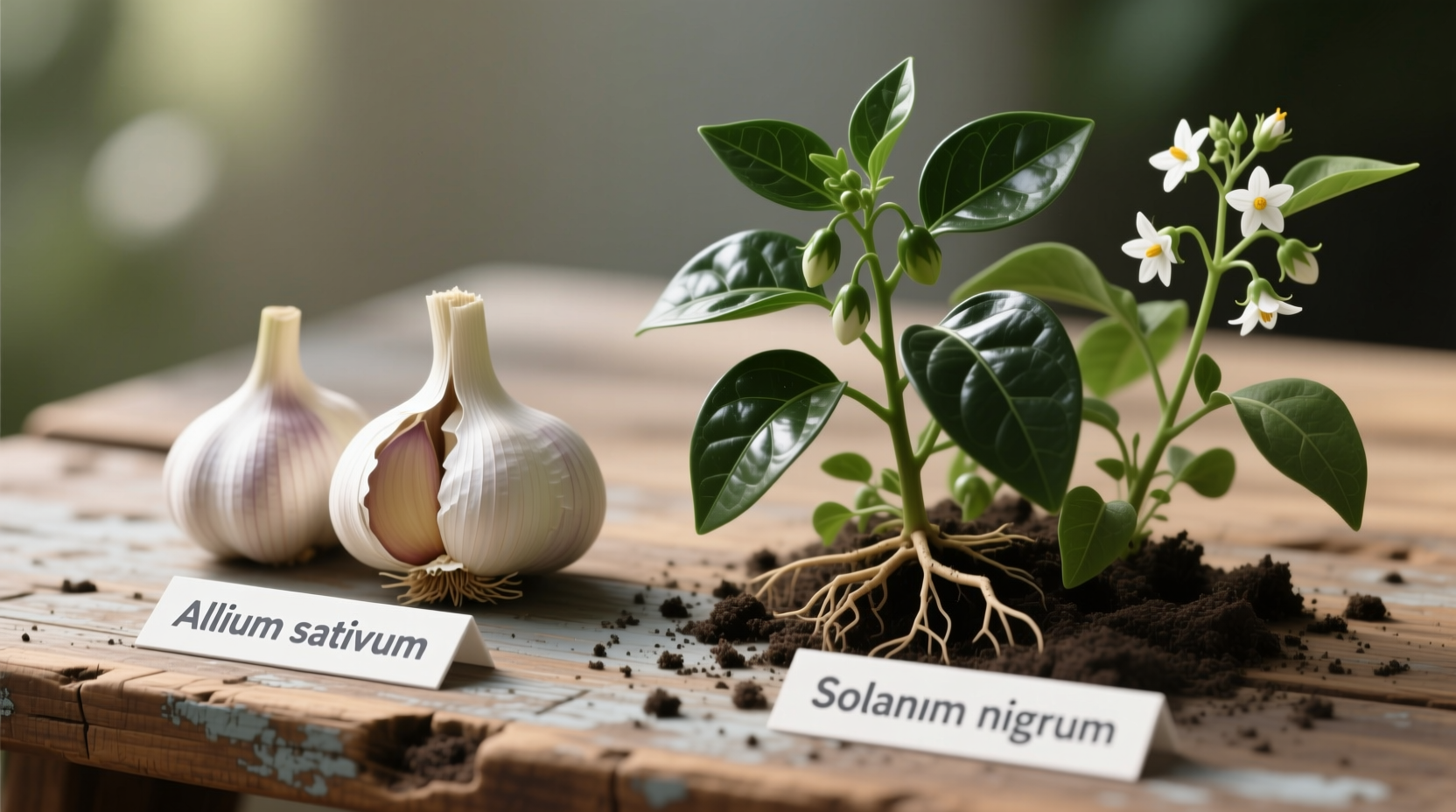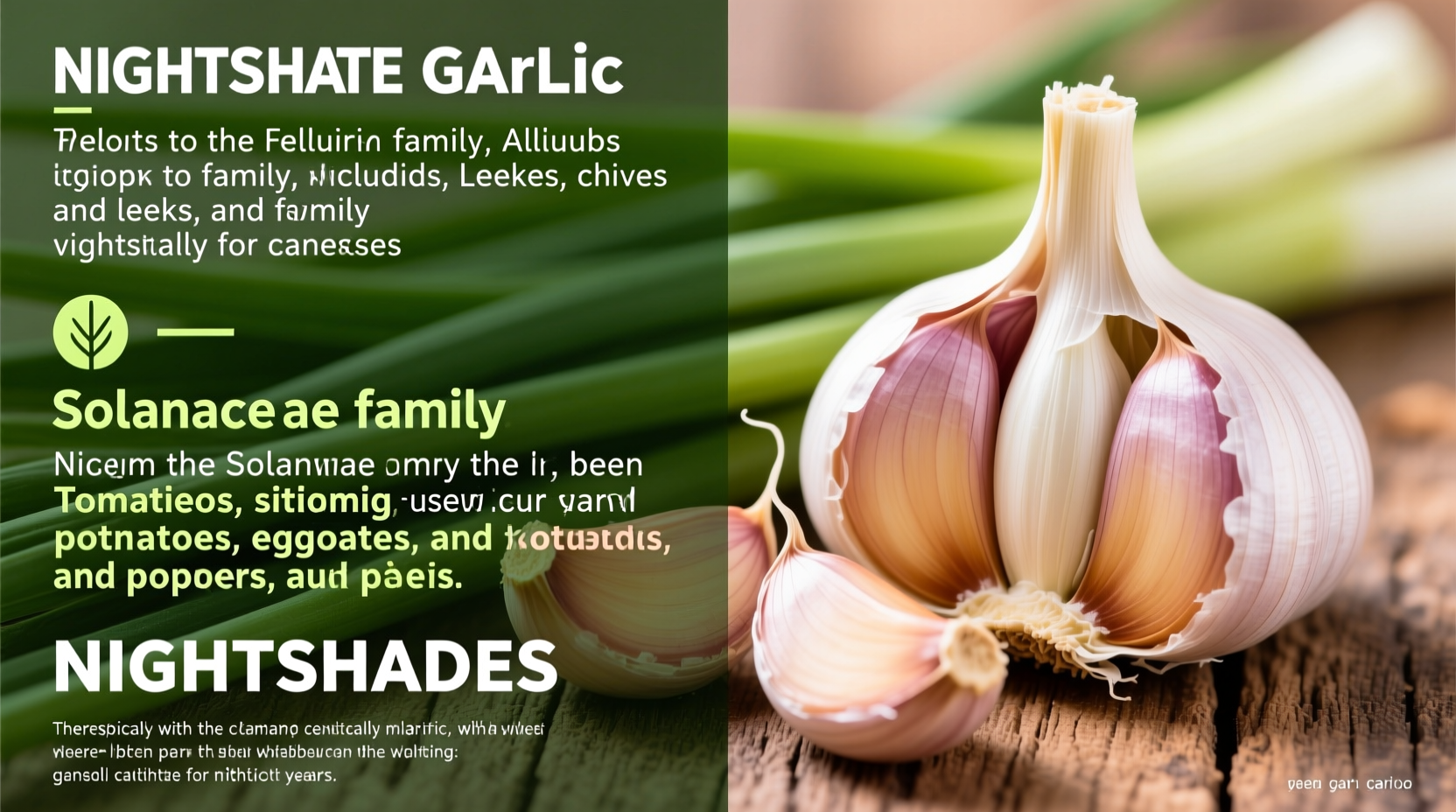Understanding plant classifications matters more than you might think, especially if you're navigating dietary restrictions. Many people mistakenly believe garlic falls under nightshades due to confusion about plant families, but this misconception could unnecessarily limit your diet. Let's clarify exactly where garlic stands in botanical classification and what this means for your kitchen and health.
What Are Nightshades Anyway?
Nightshades refer to plants in the Solanaceae family, which contains over 2,700 species. The most common edible nightshades include tomatoes, potatoes (but not sweet potatoes), eggplants, and peppers (both sweet and hot varieties). These plants share certain chemical compounds called alkaloids, particularly solanine and capsaicin, which some individuals find problematic.
According to the USDA Plants Database, the Solanaceae family is characterized by specific floral structures and chemical profiles that distinguish it from other plant families. Understanding these botanical distinctions helps clarify why garlic doesn't belong in this category.
Garlic's True Botanical Family
Garlic (Allium sativum) belongs to the Alliaceae family, now classified under the larger Amaryllidaceae family in modern taxonomy. This family includes onions, leeks, chives, and shallots—all known for their sulfur-containing compounds that create their distinctive flavors and aromas.
The confusion between garlic and nightshades likely stems from both being common culinary ingredients, but botanically they're as different as apples and oranges. While nightshades produce alkaloids, Allium plants produce organosulfur compounds, which have different effects on the body.
| Characteristic | Nightshade Family (Solanaceae) | Allium Family (Amaryllidaceae) |
|---|---|---|
| Common Examples | Tomatoes, potatoes, eggplants, peppers | Garlic, onions, leeks, chives |
| Key Compounds | Alkaloids (solanine, capsaicin) | Organosulfur compounds (allicin) |
| Flower Structure | Typically 5-petaled flowers | Clustered spherical flower heads |
| Dietary Concerns | Potential issues for some with arthritis or sensitivities | Rare allergies, generally well-tolerated |
Why This Classification Matters for Your Health
If you've been avoiding garlic thinking it's a nightshade, you've likely been unnecessarily restricting a beneficial food. Research from the National Institutes of Health shows garlic contains allicin, which has documented cardiovascular benefits and antimicrobial properties.
For those with nightshade sensitivity—a condition where certain compounds in nightshades may trigger inflammation or digestive issues—knowing that garlic is safe can significantly expand dietary options. Many nightshade-free diet resources mistakenly include garlic in restriction lists, causing confusion.

Common Misconceptions About Garlic and Nightshades
The confusion between garlic and nightshades persists for several reasons:
- Grouping by culinary use: Both are common flavoring agents, leading some to assume they're related
- Misinformation online: Many wellness blogs incorrectly list garlic as a nightshade
- Dietary elimination patterns: People eliminating multiple food groups sometimes group unrelated items together
It's important to note that while garlic isn't a nightshade, some individuals may have sensitivities to Allium plants (called allium sensitivity), which is completely separate from nightshade sensitivity. These are distinct conditions requiring different dietary approaches.
Practical Guidance for Nightshade-Sensitive Individuals
If you're following a nightshade-free diet for health reasons, here's what you need to know about garlic:
- Garlic is completely safe to consume on a nightshade-free diet
- You can use garlic liberally as a flavor base in place of nightshade-containing ingredients
- When dining out, focus on avoiding tomatoes, peppers, and eggplants rather than worrying about garlic
- Read labels carefully for hidden nightshades like paprika or tomato derivatives
The American Nutrition Association emphasizes that accurate food classification is essential for effective dietary management. Eliminating foods unnecessarily can lead to nutrient deficiencies and reduced dietary variety.
When to Consult a Professional
If you suspect you have nightshade sensitivity, work with a registered dietitian or healthcare provider rather than self-diagnosing. They can help you:
- Determine if your symptoms are truly related to nightshades
- Create a balanced elimination diet that doesn't unnecessarily restrict safe foods like garlic
- Monitor for nutrient deficiencies that might occur with restrictive diets
- Gradually reintroduce foods to identify specific triggers
Remember that individual responses to foods vary greatly. What causes issues for one person might be perfectly fine for another. The key is understanding the science behind food classifications so you can make informed decisions about your diet.
Frequently Asked Questions
Is garlic considered a nightshade vegetable?
No, garlic is not a nightshade. It belongs to the Allium family (Amaryllidaceae), which is completely separate from the nightshade family (Solanaceae). Common nightshades include tomatoes, potatoes, eggplants, and peppers.
Can I eat garlic if I'm avoiding nightshades?
Yes, garlic is completely safe to consume on a nightshade-free diet. Since it belongs to a different plant family (Allium), it doesn't contain the alkaloids found in nightshades that some people are sensitive to.
Why do some people think garlic is a nightshade?
This misconception likely comes from grouping all strong-flavored vegetables together. Both nightshades and Allium plants are common in cooking, but they're botanically unrelated. Some wellness blogs incorrectly list garlic as a nightshade, perpetuating this error.
What are the main differences between nightshades and Allium plants?
Nightshades (Solanaceae) produce alkaloids like solanine, while Allium plants produce organosulfur compounds like allicin. They have different flower structures, growth patterns, and chemical profiles. Nightshades include tomatoes and peppers, while Allium plants include garlic, onions, and leeks.
Are there any health benefits to eating garlic if I avoid nightshades?
Yes, garlic offers numerous health benefits including cardiovascular support, antimicrobial properties, and potential anti-inflammatory effects. Since it's not a nightshade, these benefits are accessible to those following nightshade-restricted diets without concern about nightshade-related compounds.











 浙公网安备
33010002000092号
浙公网安备
33010002000092号 浙B2-20120091-4
浙B2-20120091-4